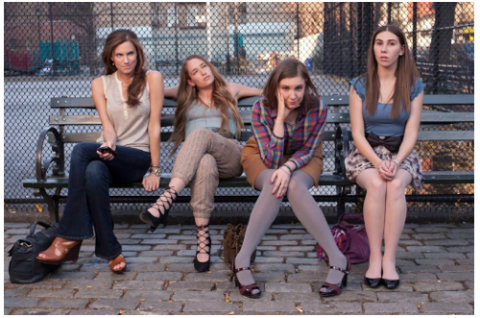Once seen, why do people not continue to notice, see and speak about a divide that seems to persist so silently?
Buzz, buzz, buzz, that's what caffeine does
What a meta Wednesday
What am I to think?
Book reaction: World War Z
Interesting things
Baffled
A belated farewell to Nora Ephron
Popular culture can pack quite a personal punch
 I was recently rereading Bridget Jones' Diary (for the fourth time: yes, it's my guilty pleasure and I offer no apologies for it). I was enjoying March’s flirtatious back-and-forth with Daniel Cleaver, when I noticed a few passages that really dated the book. It made me wonder what heroine-led tale would encapsulate our present decade.Then it hit me: there are no leading women in the tales of popular culture any more, only girls.
I quickly complied a mental list of today’s leading literary ladies who could take Bridget’s place: Katniss Everdeen, Bella Swan and Ana Steele. I started to panic. These characters are all barely more than children, and need or want guidance and control from a man. Maybe TV could step in and calm my nerves. The Sex and the City of this generation turns out to be: Girls. No luck there. I was astounded. My identity had just been robbed of any cultural representation. It felt like I was suddenly invisible.
I was recently rereading Bridget Jones' Diary (for the fourth time: yes, it's my guilty pleasure and I offer no apologies for it). I was enjoying March’s flirtatious back-and-forth with Daniel Cleaver, when I noticed a few passages that really dated the book. It made me wonder what heroine-led tale would encapsulate our present decade.Then it hit me: there are no leading women in the tales of popular culture any more, only girls.
I quickly complied a mental list of today’s leading literary ladies who could take Bridget’s place: Katniss Everdeen, Bella Swan and Ana Steele. I started to panic. These characters are all barely more than children, and need or want guidance and control from a man. Maybe TV could step in and calm my nerves. The Sex and the City of this generation turns out to be: Girls. No luck there. I was astounded. My identity had just been robbed of any cultural representation. It felt like I was suddenly invisible.
As the week progressed, this thought continued to buzz through my brain like the electric cables that run through London’s Underground. Then I heard that the Pussy Riot verdict had been delivered. In the media storm that followed I stumbled across an article, which reported that the American press had avoided using the word ‘pussy’ in any print headlines.
Pussy Riot were making a statement, but in the land of the free the very identity from which they spoke had to be censored. I heaved a tired sigh. I was too sad to be angry. The buzzing fell silent and I felt a little less sure of myself.
As it turned out, my mind did not stay quiet for long. This bruising week ended as I watched Green Day’s new music video for ‘Oh Love’. I already liked the song and I watched with smiling anticipation. As it played my gaze gradually hardened. What appeared before me was a hyper-sexualized, hackneyed objectification of a group of (very) young women.
[youtube http://www.youtube.com/watch?v=IWwMqa-_210?rel=0]
One of my favourite bands, a band that had previously earned the descriptives of alternative, punk, and rebellious had undermined all that they stood for by making women passive targets. Their lead singer, Bille-Joe, stated that the song is about "shooting a little bit more from the crotch area". I wanted to track him down and scream: “but Billie-Joe, I have a crotch too, and I can shoot just as well as you.”
That week drew to a close and my encounters with these little pieces of popular culture coalesced around a much bigger idea. I had woken up to find that popular culture is not waging a war against women: it’s admonishing unruly little girls, who can’t fight back. But I’m not a little girl.
It’s time to grow up.
